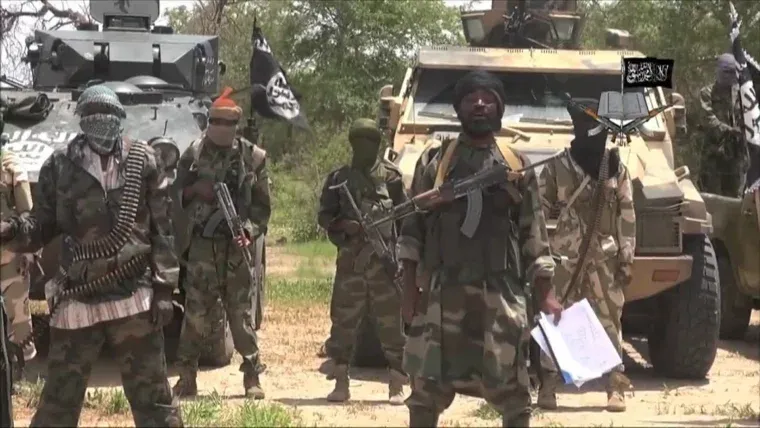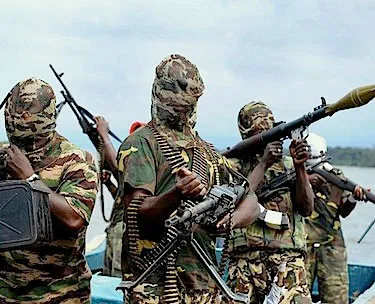Nigeria has suffered from conflict for years. In the time since the Boko Haram insurgency began, it has claimed more than 20,000 lives and displaced millions of people. From a security standpoint, this crisis is also one of the most complexes in recent memory. Multiple armed groups are involved, civilians are routinely caught in the crossfire, and both state security forces and non-state actors commit human rights violations on a daily basis.
Perhaps worst of all, there is little indication that the violence will end anytime soon. The siege of Maiduguri is just one example of why that’s so concerning. The city of Maiduguri—the provincial capital of Borno State and home to roughly 1 million people—has been under siege by Boko Haram since mid-2014. As a result, nearly 300,000 people have fled to other parts of Borno State as well as neighboring states.
Security Responses from the Nigerian Government
In its efforts to reclaim territory lost to Boko Haram, the Nigerian government has employed a number of different security responses. The state has deployed its military, special forces, and a police force that has been criticized for excessive use of force and human rights abuses. As the violence has escalated, the government has increasingly relied on a state of emergency that has allowed it to detain individuals without charge.
Additionally, Nigeria has sought support from its neighbors, the African Union, and other international partners. The United States and other Western nations have provided funds, training, and intelligence support. In recent years, China has also emerged as a significant donor to Nigeria and a key trading partner. With all these security responses at its disposal, the Nigerian government has been able to retake significant amounts of territory from Boko Haram. In fact, the violence of the last three years has produced one of the world’s largest internal displacement crises, with approximately 2.5 million people displaced in Nigeria and a further 1.8 million refugees in neighboring countries.
https://twitter.com/SaharaReporters/status/1542960572278489088?s=20&t=qiDpGcZqKMQ5PrhbM5c8iA
- SaharaReporters
Boko Haram’s Use of Suicide Bombers
In many ways, suicide bombers are the most dangerous threat from the Boko Haram insurgency. They are a core tactic in the organization’s arsenal, with the capacity to inflict mass casualties, disrupt civilian life, and undermine confidence in the state’s ability to provide security.
CRF reported that in the last three years, suicide bombings have become a regular aspect of life in Nigeria’s northeast. In some areas, including Maiduguri, they are so common that residents have developed an almost numbed sense of fear. Yet despite their frequent occurrence, these attacks cause significant damage. According to the United Nations Assistance Mission in Nigeria (UNAM), between 2014 and the end of 2018, Boko Haram conducted at least 599 suicide bombings, claiming more than 3,500 lives.
The Ongoing Food Crisis in Borno State
World Food Programme reported that another threat from the Boko Haram siege is a growing food crisis in Borno State. Though some farmers have continued to cultivate their land and harvest crops despite the ongoing violence, the crisis has had a significant impact on crop levels.
According to UN and International Organization for Migration estimates, 85 percent of the population in seven of the nine Borno State local government areas is in need of humanitarian assistance, with roughly half of these people in a state of “severe food insecurity.” And while the Nigerian government and international partners have made strides in addressing the food crisis, continuing violence has hindered their efforts.
For example, the government has repeatedly expressed concerns about the humanitarian convoy system, which allows aid organizations to send food, water, and other essential goods to people in need. This system relies on trucks and other vehicles moving freely across the state. Yet the Nigerian military has occasionally confined such convoys and even confiscated some vehicles for alleged security reasons.
Way Forward
In short, the ongoing crisis in Nigeria is a massive humanitarian disaster, and the siege of Maiduguri is just one example of why that’s so concerning. The Nigerian government has struggled to address the crisis, and there is much work left to be done. The most pressing challenge is to bring the conflict to an end by finding a political solution to the crisis.
This will require finding a way to reconcile with members of the Boko Haram insurgency—both to end the ongoing violence and ensure that it does not resume in the future. This will be no easy task. Boko Haram members have been subjected to a brutal, years-long campaign that is likely to have left them distrustful of the government. Additionally, the government will need to address the grievances that gave rise to the insurgency in the first place. But the first step to achieving any of this will be ending the siege of Maiduguri.
Sources:
https://www.cfr.org/global-conflict-tracker/conflict/boko-haram-nigeria
https://www.govinfo.gov/content/pkg/CHRG-114hhrg20100/html/CHRG-114hhrg20100.htm

